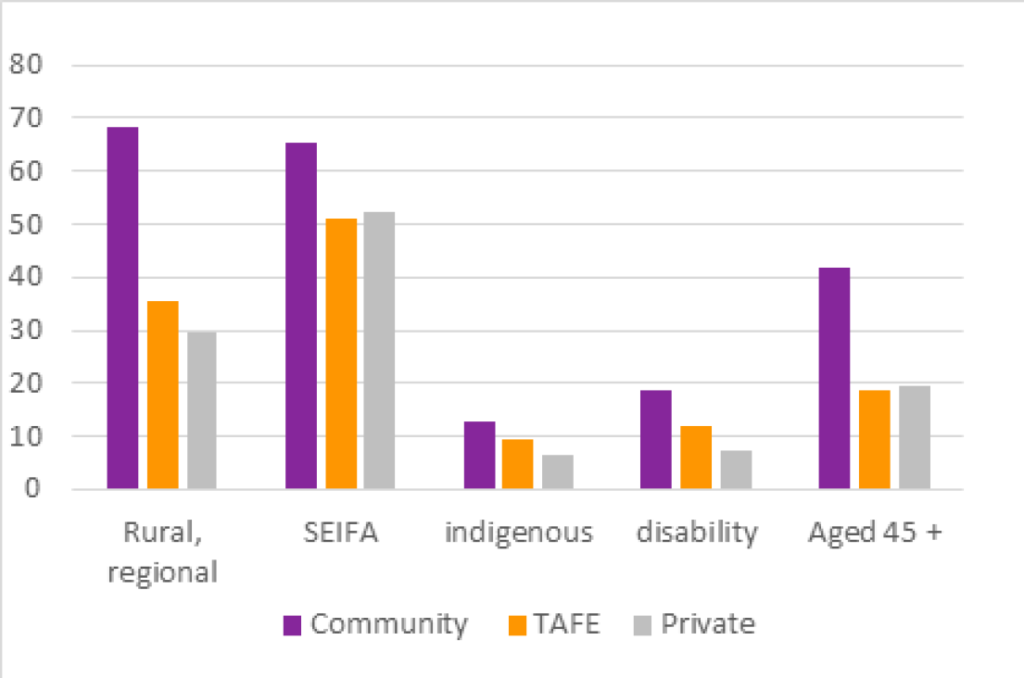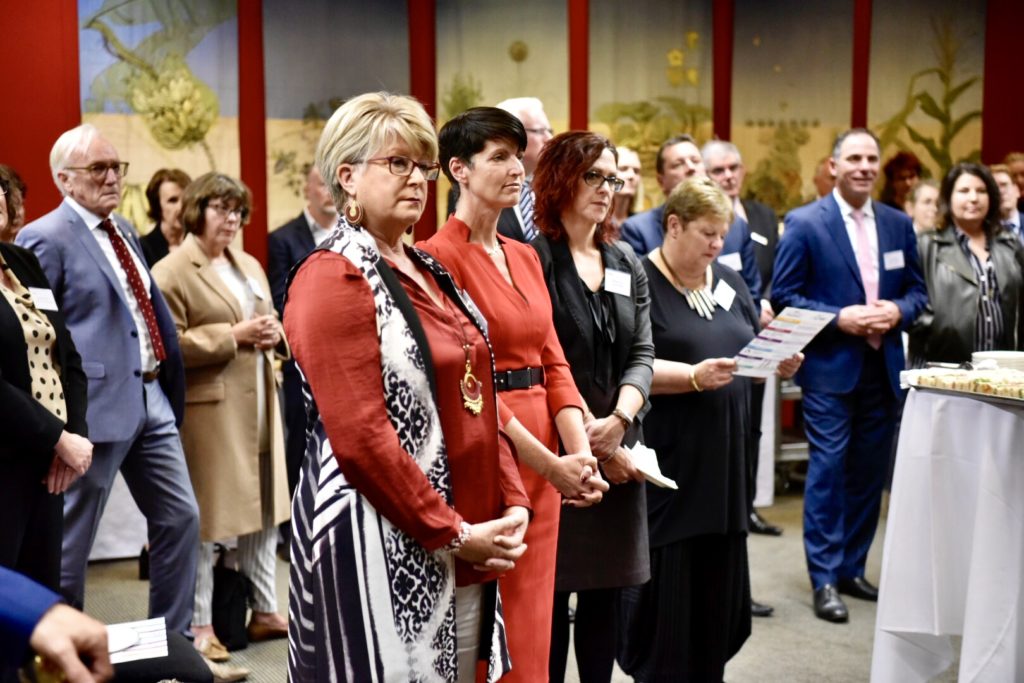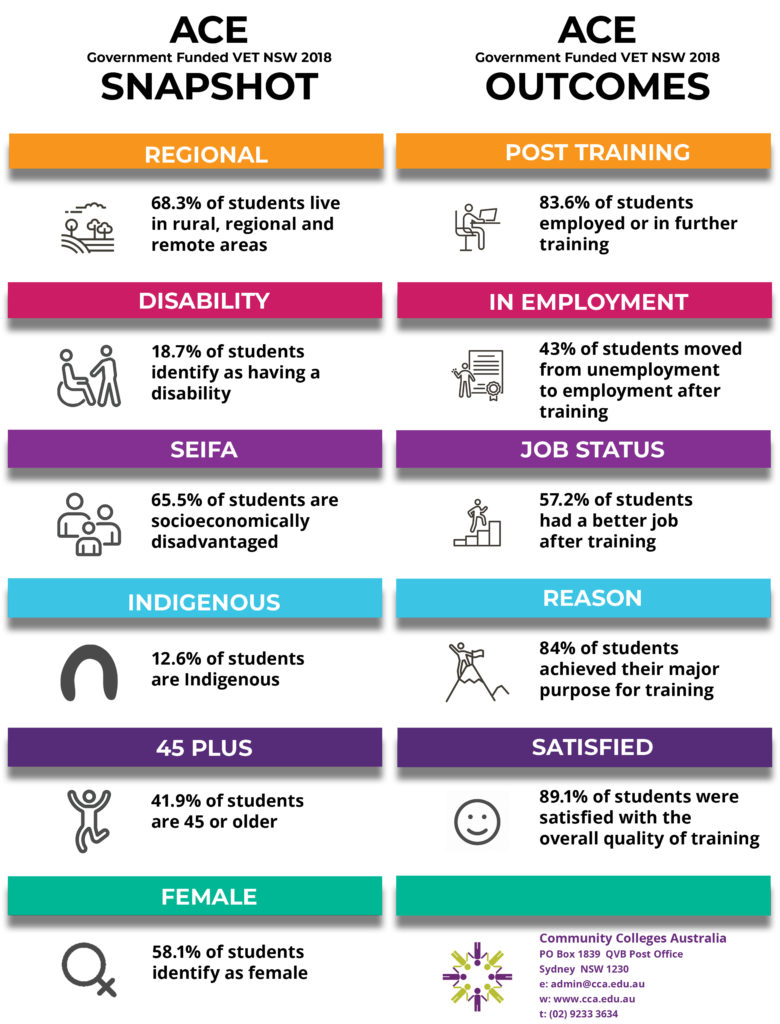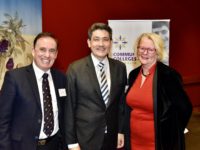A launch of the latest Community Colleges Australia report shows how NSW community education providers significantly over-perform on almost all tracked measures in reaching vulnerable and disadvantaged students.
The NSW Minister for Skills and Tertiary Education, the Hon Dr Geoff Lee MP, launched the Community Colleges Australia (CCA) report (PDF), on government-funded NSW students, at NSW Parliament House in the presence of 70 NSW MLCs and MLAs, CCA members and other guests. (See photos below.)
“Community colleges play a great role in up-skilling, or in allowing people to change careers or improve their career prospects,” Minister Lee said.
“I am particularly impressed that 13 percent of community education students have an Indigenous background, and nearly one in five students have a disability, an important focus for the Government for how we become an inclusive and caring society,” Minister Lee said.
“Some 68 percent come from regional, rural and remote areas, and 65 percent of students come from low socio-economic status backgrounds,” Minister Lee said.
“Those statistics show that colleges really target groups that need as much support as we possibly can provide,” Minister Lee said.
“Community colleges are and will be an important part of post-secondary school education and occupy an essential place … for people who cannot access the traditional RTO, TAFE or higher education system,” Minister Lee said.
“The grassroots contact with local communities is so important in understanding what communities need, and being able to cater for individual learners with their own needs and expectations," Minister Lee said.
“The passion of the colleges, the boards, the CEOs and the teachers; it is amazing what you do with limited resources. As a cost-effective way to engage marginalised communities in getting a first job or helping migrants learn English, or in rural areas, community colleges do a sensational job,” Minister Lee said.
Image above: Minister Dr Geoff Lee, pictured with David Fuller, CCA Chair (& CEO of WEA Illawarra) and Theresa Collignon, CCA Treasurer (& CEO of Macquarie Community College).
Highlights of the CCA Report
The CCA report, entitled Vulnerable and Disadvantaged Students of NSW Not-for-Profit Community Education Providers: Analysis of 2018 Data, uses NCVER statistics on government-funded VET published in July 2019. Report highlights:
- Almost 13% of NSW government-funded community education students are Indigenous.
- About one-fifth of NSW students have a disability.
- More than two-thirds of students live in regional and rural NSW.
- Two-thirds of NSW students are disadvantaged.
- More than 40% of NSW students are older, age 45-plus.
- More than 58% of NSW students are women, meaning that CCA members do more than their part to support national goals to increase female workforce participation.
- More than half of NSW community education students move from being unemployed to being employed after engaging in training, much greater than the NSW state average.
Student Percentages by Vulnerability and Disadvantage:

View the report’s Executive Summary (PDF) and read the full CCA report (PDF), Vulnerable and Disadvantaged Students of NSW Community Education Providers Analysis of 2018 Data (25 September 2019).
CCA Chair David Fuller quotes
In his speech, CCA Chair David Fuller said:
“There would not be an electorate or a region in the state where one or more of our 35 New South Wales members deliver some form of educational, community or social service. Our members are particularly important outside of metropolitan Sydney, with two thirds headquartered in regional or rural locations.
“As this report clearly demonstrates, our colleges help learners achieve their aspirations for a better life through education, skilling and the employment opportunities this creates.
“In some cases, our members – such as my own and Atwea College, formerly WEA Hunter – have an unbroken history of adult and community education going back more than 100 years, as we were founded in 1913. This makes us some of the oldest – and most sustainable – post-secondary institutions in Australia.
“As well as delivering accredited VET, CCA members offer a range of other learning opportunities, such as an increasing number of independent special assistance secondary schools. These cater for many of the most disadvantaged students. In my own case, WEA Illawarra operates four separate secondary school campuses throughout the Illawarra and the Southern Highlands.
“State Government funding, particularly through what is now called the ‘ACE Program’, along with the Smart and Skilled program, are the life-blood that supports our work.
“On behalf of New South Wales adult and community education providers, Minister, CCA thanks you and your colleagues in the State Government for your support, now and into the future,” David Fuller said.

CCA Treasurer Theresa Collignon quotes
In her closing speech, CCA Treasurer Theresa Collignon said:
“I want to reinforce David Fuller’s remarks about the value and the importance of New South Wales Government funding. CCA estimates that our state government funding is possibly the best targeted in the whole of Australia in reaching the most vulnerable and disadvantaged learners.
“We achieve the same results of employment or further study as other VET providers. However, given that community education providers proportionately engage more vulnerable and disadvantaged learners than TAFE or for-profit providers, these outcomes are especially notable.
“Community Colleges Australia regards our relationship with the New South Wales Government as one of partnership.
“Thank you, Minister, for your work in sustaining that partnership. We also thank the Deputy Premier, John Barilaro, who proceeded you in the portfolio, for his support,” Theresa Collignon said.
(Read the full speeches by David Fuller and Theresa Collignon.)






